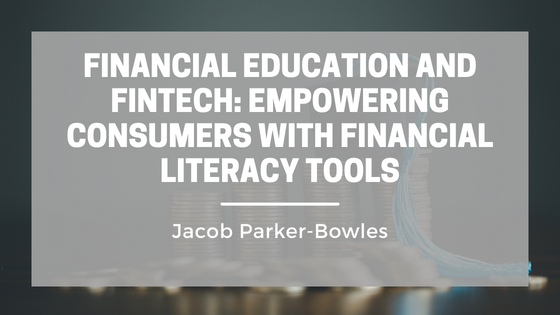In today’s fast-paced and digitally-driven world, financial literacy has become more important than ever. With the rise of fintech (financial technology) solutions, consumers have access to a wide range of tools and resources to help them manage their finances more effectively. From budgeting apps to investment platforms, fintech is revolutionizing the way people approach money management and financial planning. In this article, we’ll explore the intersection of financial education and fintech and how these tools are empowering consumers with the knowledge and resources they need to make informed financial decisions.
The Importance of Financial Education
Financial literacy is the foundation of sound financial decision-making. Yet, studies consistently show that many individuals lack even basic knowledge about key financial concepts, such as budgeting, saving, investing, and debt management. This lack of financial literacy can have serious consequences, leading to poor financial choices, debt problems, and limited opportunities for building wealth.
Financial education plays a crucial role in addressing these challenges by providing individuals with the knowledge, skills, and confidence they need to navigate the complex world of personal finance. By empowering consumers with financial literacy tools and resources, they can make more informed decisions about their money, set and achieve their financial goals, and ultimately improve their financial well-being.
Enter Fintech: Revolutionizing Financial Services
Fintech has emerged as a powerful force in the financial services industry, leveraging technology to deliver innovative solutions that streamline processes, improve accessibility, and enhance user experience. From mobile banking apps to robo-advisors, fintech companies are transforming every aspect of financial services, making it easier and more convenient for consumers to manage their money.
One of the key advantages of fintech is its ability to democratize financial services, making them accessible to a broader audience. Traditional banking and investment services were often reserved for those with significant wealth or access to brick-and-mortar institutions. Fintech has changed that by offering low-cost, user-friendly alternatives that cater to the needs of everyday consumers, including those who may have been underserved or overlooked by traditional financial institutions.
Empowering Consumers with Financial Literacy Tools
Fintech and financial education go hand in hand, with many fintech companies incorporating educational components into their platforms to help users improve their financial literacy. These tools provide users with valuable insights, guidance, and resources to help them make smarter financial decisions.
Budgeting Apps: Budgeting is the cornerstone of financial planning, yet many people struggle to create and stick to a budget. Budgeting apps like Mint, YNAB (You Need a Budget), and PocketGuard make it easy to track expenses, set savings goals, and monitor progress toward financial milestones.
Investment Platforms: Investing can be intimidating for newcomers, but fintech has made it more accessible than ever. Robo-advisors like Betterment and Wealthfront use algorithms to provide automated investment advice and portfolio management, making investing simpler and more affordable for the average investor.
Financial Education Portals: Many fintech companies offer educational resources and content to help users improve their financial literacy. These resources may include articles, videos, webinars, and interactive tools covering a wide range of topics, from basic budgeting and saving tips to more advanced investment strategies.
Credit Monitoring Services: Understanding and managing credit is essential for financial health. Fintech companies like Credit Karma and Credit Sesame provide free credit monitoring services that allow users to track their credit scores, review credit reports, and receive personalized recommendations for improving their credit profiles.
Peer-to-Peer Lending Platforms: Peer-to-peer lending platforms like LendingClub and Prosper offer an alternative to traditional bank loans, allowing individuals to borrow and lend money directly to one another. These platforms provide access to credit for borrowers who may have difficulty obtaining loans from traditional sources and offer investors an opportunity to earn attractive returns on their investments.
Cryptocurrency Platforms: Cryptocurrency has emerged as a new asset class with the potential for significant returns, but it also comes with unique risks and challenges. Fintech platforms like Coinbase and Gemini make it easy for users to buy, sell, and store cryptocurrencies, while also providing educational resources to help users understand the complexities of the crypto market.
In conclusion, financial education and fintech are powerful tools for empowering consumers with the knowledge and resources they need to achieve their financial goals. By leveraging technology and innovative solutions, fintech companies are democratizing financial services and making them more accessible to a broader audience. By embracing financial education and taking advantage of fintech tools, individuals can take control of their finances, build wealth, and secure their financial future.

